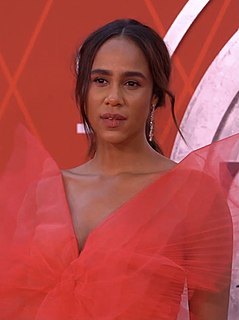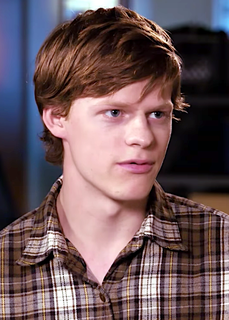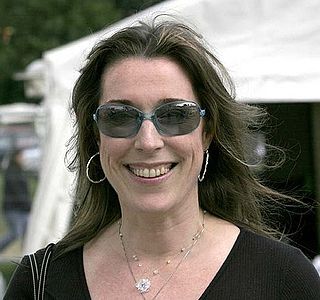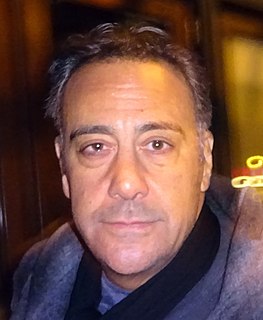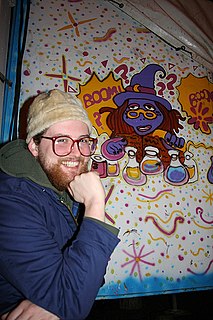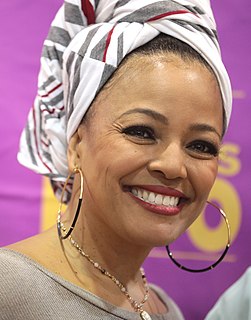A Quote by Zawe Ashton
I had a meeting a while back with a big group of women - actors and producers and writers - who are all ethnic minorities and we just aired what we thought was happening and why, and someone said that, as a black or mixed race actress, you feel like you're renting space instead of carving out a career. But I'm just going to get on with it.
Related Quotes
It's like I'll sit down and put my hands on the piano or the guitar, and then I'll hear a sound or I'll feel a chord that will resonate and then I'll get something happening in my voice. My voice is like a car that I get into and drive but I don't know where I'm going. And I record everything. And often, I sort of get into a state, a creative state that is, where I'm just feeling around melodically, and playing things off the top of my head. Then I go back and listen to it and for the first time, hear what I just did. It's like Elvis has left the building while the thing is happening.
Just for a while": Death's opening chat-up line in His great seduction, before he drugged you with soporific comforts, distracted you with minor luxuries and ensnared you with long-term payment plans. Join the Rat Race "just for a while." Concentrate on your career "just for a while." Move in with your girlfriend "just for a while." Find a bigger place, out in the burbs "just for a while." Lie down in that wooden box "just for a while.
I mean, so if I've talked to whites in City of Refuge, sometimes they'll wonder, "Why do we do things a certain way, and why do we make a big deal out of events?" And what's happening is they're falling back on their understanding of the way that church should work. It's not always working exactly like that, and they feel frustration or confusion. Sometimes people leave. That's certainly common in mixed churches.
As a writer, you know what the purpose of the scene is. It really has nothing to do with the actor so you have to really get out of that space because for actors it's a micro-focus and then you figure out your arc through what the writers have given you to say. But that arc is just one little piece of the huge arc of the whole film. It took a while to get out of that.
I'd met Harrison Ford before, but he was just finishing a meet with Jon Favreau and the other producers on the film, and we said "hello" as he walked out and I walked in and sat down and had this meeting with those guys. They basically described what they were looking for, and they thought that I brought a certain amount of authenticity to the genre, and would I want to take part? And I said, "Absolutely! I'd love to!"
Looking back six years ago when I had just come from 'The Office' to 'The Mindy Project' and what I was trying to say back then. I feel like we don't revisit our younger idealistic selves, you just get in this pattern of churning these episodes out. Now I was like, "Let's try and get in my mind back then," because my life personally has changed so much, too. I just thought, "What was I trying to say? And now can I make it look like it was all part of one larger story."
There's this zeitgeist happening, and people are more open to 'Sorry to Bother You' being a hit with 'Get Out' being out there. But that zeitgeist is also happening because of the movements going back to Occupy and Black Lives Matter. Usually, film is years behind. It just so happens that, this time, everything is lining up.
Email is a mind-killer. Like, I really think getting a smartphone is the worst move I ever did in being a musician because while we've just been talking my phone's vibrated like 15 times and I only get push notifications for like two apps, so either like a bunch of houses are going up for sale right now or someone's like, "Why aren't you emailing me back?" It's just hard to stay in the moment. I can understand why people go to retreats to write and stuff like that but I don't have the time.
To me, acting used to be just, 'Get my face out there, get girls, make a little bit of money, make my mom proud.' It was just like sports. But there were moments in 'Moonlight' that I really felt like I had to know why he is the way he is. Or just people in general - why this person walks around with a frown on their face instead of a smile.
What I learned about acting, from my experiences directing, is why so many producers and directors don't like actors. You go through all of this work securing a location, figuring out how to get electricity there, how to get trucks parked where they need to be, and where catering is going to come from. And if the actors don't come up with some magic, it actually didn't matter. That creates a lot of animosity towards the actors.
I'm not just considered a former child star. I'm not considered a black actress. I'm not considered an actress. I've done roles that were written for men. First and foremost, is God, I definitely believe in Him, having kind of mapped out what my destiny was going to be. Therefore, I wasn't just going to be put in just that one box or kept in that one place.
My hope as an actress is knowing that I'm someone who is more privileged - I'm biracial and lighter-skinned - and I hope it can open up the door for more women of color, especially darker-skinned black women. I hope everyone hops on the bandwagon and decides to start putting women of color in movies that aren't just about race.
It only seems jarring when you look back on the work I've done. I think if you had to map that out at the beginning and you said, "Right, sit down, this is what you're going to be doing," you'd probably freak out. But I'm someone who really enjoys not being himself. So if you consider that, then it all sort of makes sense. And I just think that's the job of an actor. I guess that's the variation that you're talking about. It's probably a byproduct of just constantly looking for something different, because that's what I feel like I'm supposed to do.
If you do a black character or a female character or an Asian character, then they aren't just that character. They represent that race or that sex, and they can't be interesting because everything they do has to represent an entire block of people. You know, Superman isn't all white people and neither is Lex Luthor. We knew we had to present a range of characters within each ethnic group, which means that we couldn't do just one book. We had to do a series of books and we had to present a view of the world that's wider than the world we've seen before.
